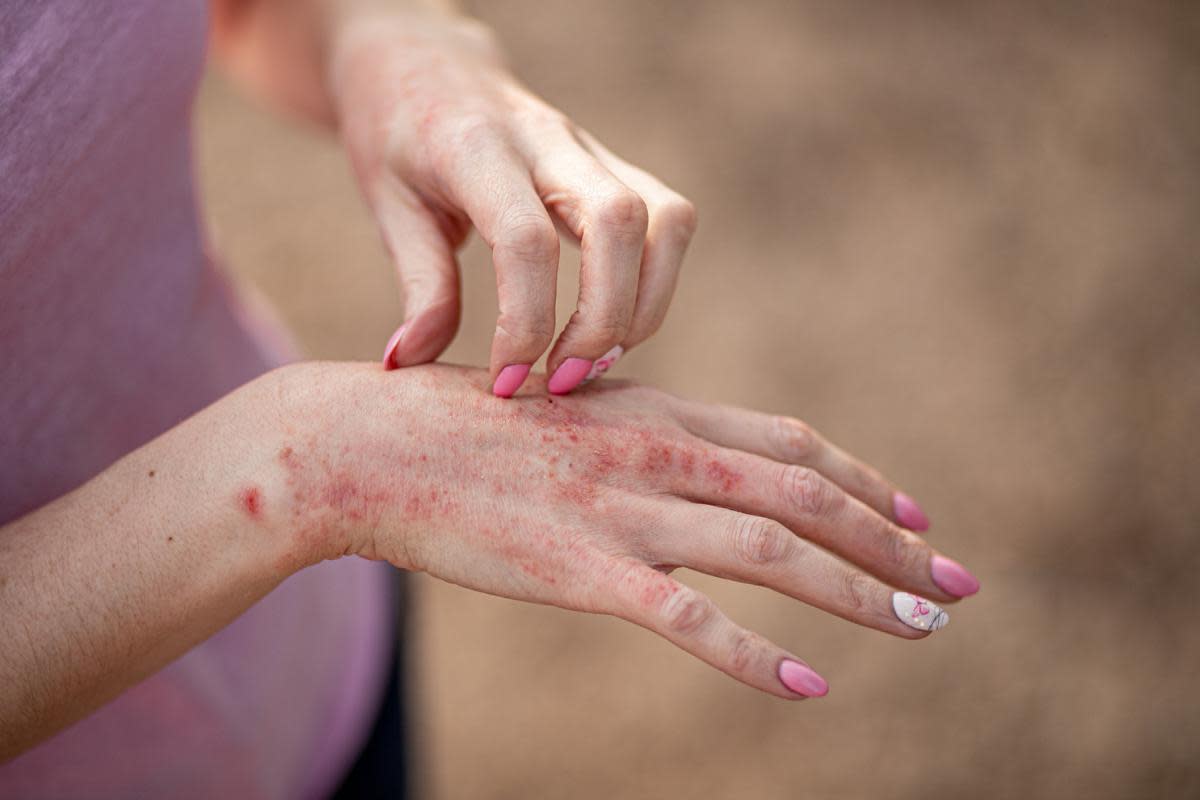What is contact dermatitis? Symptoms and when to see a doctor

While you might think you know your body, it can offer surprises from time to time like the development of dermatitis.
There are different types of dermatitis, one being contact dermatitis.
If you’re trying to work out if you have contact dermatitis or want to know more about it, look no further.
What is contact dermatitis?
Contact dermatitis is a type of eczema that develops when the skin comes into "contact with a particular substance", according to the NHS.
Winter skincare: How to combat dry skin
Eczema is the umbrella term for a group of conditions that can make skin dry and irritated.
Contact dermatitis usually goes away if a person can identify the substance that's irritating the skin and stop using it.
Substances can include soap, detergents, solvents or regular contact with water.
However, treatments are available for those suffering from it.
What are the symptoms of contact dermatitis?
Skin can get itchy, dry, blistered and cracked if you have contact dermatitis.
Those with lighter skin might notice it becomes red while darker skin may become dark brown, purple or grey.
Contact dermatitis usually starts appearing within a few hours or days of the skin coming into contact with the irritant or allergen.
While the symptoms most commonly affect the hands and face, they can affect any part of the body.
Symptoms of irritant contact dermatitis:
Mild dryness
Redness
Burning or stinging skin
Very painful blisters that fill with fluid
Symptoms of allergic contact dermatitis
Mild redness or itchiness
Cracked skin
Skin filled with fluid
Extremely itchy skin
Stinging sensation
Many local pharmacies are now able to give out medicine for five common health conditions that would have previously needed a prescription from a GP.
The includes sore throats, female urine infections, impetigo and dermatitis, and conjunctivitis.
🔗https://t.co/xxHZxxuBO9 pic.twitter.com/jbkDlMrO2q— Great Western Hospitals NHS Foundation Trust (@GWH_NHS) November 22, 2023
When should you see a doctor?
If you think you have contact dermatitis that is troubling you, the NHS advises that you ask a pharmacist about it as they can recommend emollients which are moisturisers that help stop your skin from getting dry.
Or you could be given steroid ointments or creams.
Recommended reading:
DWP to pay extra £362 a month to anyone with these health conditions from April
DWP to pay anyone with one of these skin conditions £400 a month
The NHS website says: “See a GP if you have persistent, recurrent or severe symptoms of contact dermatitis. They can try to identify the cause and suggest appropriate treatments.”
If the thing causing your skin irritation can’t be identified or your symptoms aren’t getting better with treatment, your doctor may refer you to a dermatologist who specialises in treating skin conditions so you can have further tests.
Other types of eczema include atopic eczema, discoid eczema and varicose eczema - you can find out more via the NHS website.

 Yahoo News
Yahoo News 
